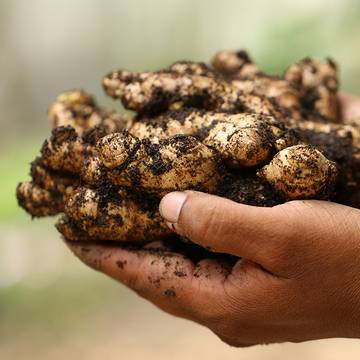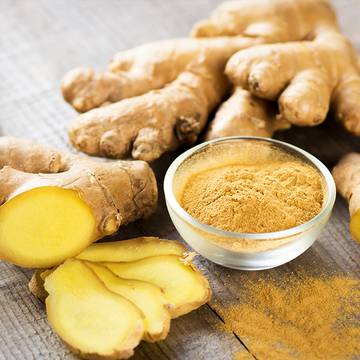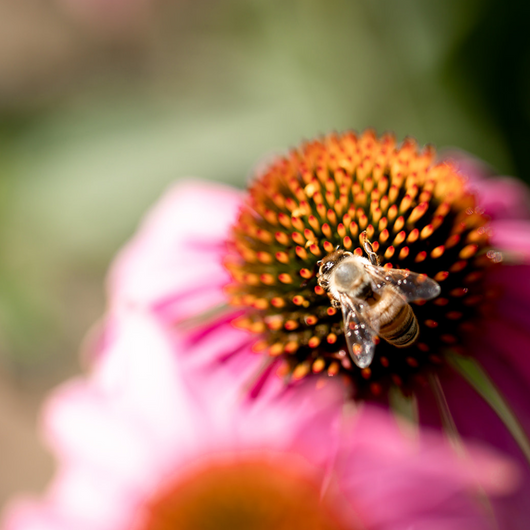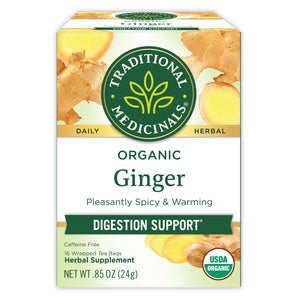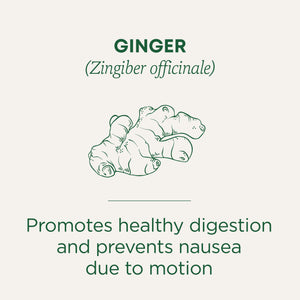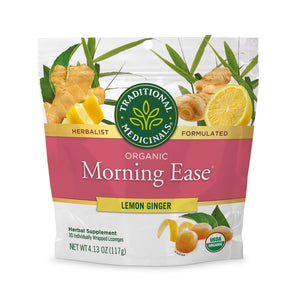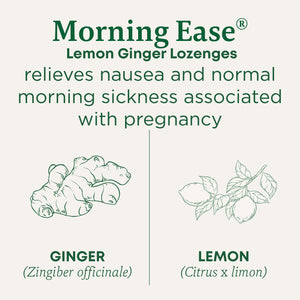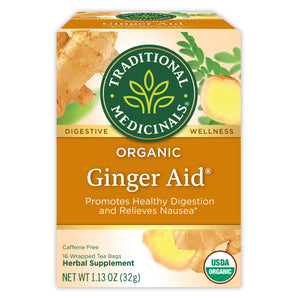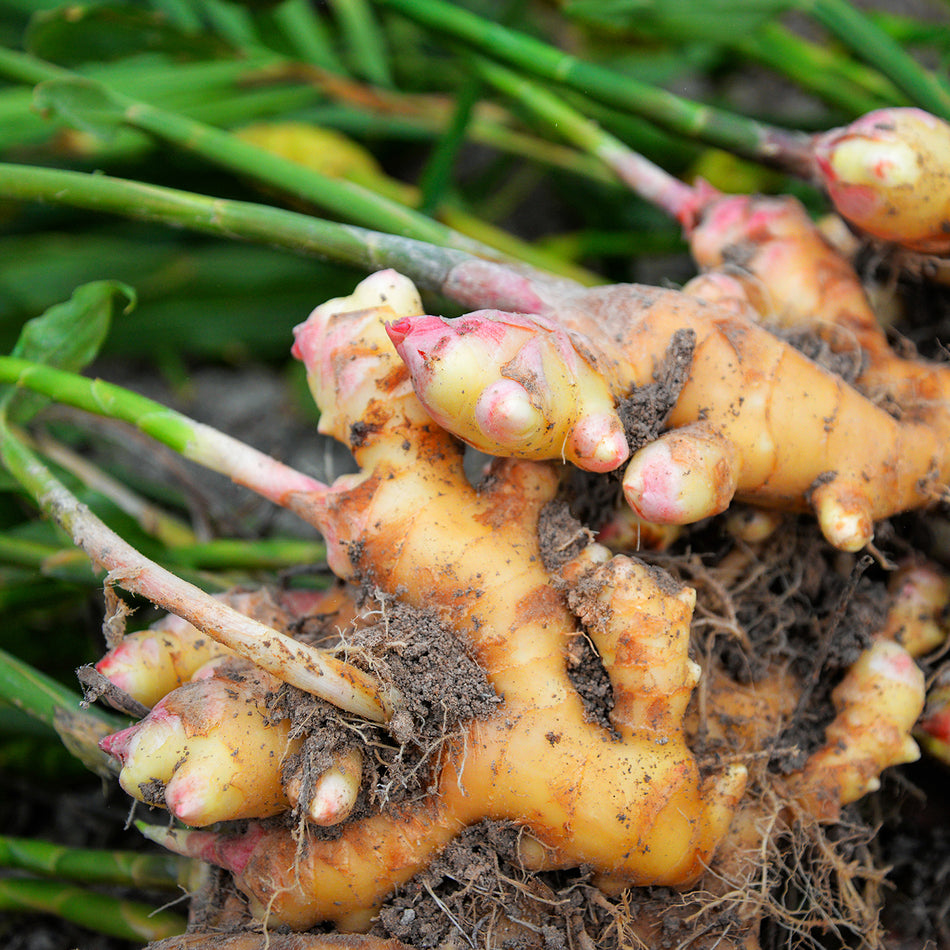
Ginger
Zingiber officinaleHerbal practitioners have used ginger’s rhizome to help with digestion, upset stomach, and nausea for more than 2,000 years.*
Ginger’s peppery bite adds more than just spice—it packs the punch in this plant’s medicine.
What are the Benefits of Ginger?
This warming root (well, really a rhizome) is commonly used in tropical cuisines for its bold, spicy flavor. When used at the right dose internally, such as in an infusion or tincture, ginger helps ease occasional indigestion, cramping and helps settle a belly due to general nausea and motion sickness.* Ginger was even traditionally used externally as a poultice or salve for a variety of uses. In modern Western herbalism, it’s more technically known as a carminative and antispasmodic, while there is evidence of it also being used traditionally as a diaphoretic, energetic stimulant, and emmenagogue.* A mouthful, we know, and a nod to its power.
Folklore & Historical Use of Ginger
Historically, ginger has played an essential role in Indian, Middle Eastern, and Asian herbal medicine traditions. It’s a popular addition to formulas that need a warming quality. In many traditional medicine theories, it’s a way to promote circulation and flow in a body that’s being challenged with different forms of constriction—whether it be occasional cramping or general digestive issues.*
It’s also featured in many international cuisines. In Indian cuisine, it’s infused into spicy masala chai. In Japan, it’s known as pickled gari, the spicy, pink shavings served with sushi. And, in Jamaica, you’ll see it served as a refreshing non-alcoholic beer. Sipping on a simple cup of ginger tea daily is a great way to ensure you’re getting all the benefits from this powerhouse plant.*
Botanical Description & Habitat
Here at Traditional Medicinals, we use the species Zingiber officinale in our herbal formulations, including teas and lozenges. This species of the Zingiberaceae plant family thrives in heat and humidity, making it an ideal plant for subtropical and tropical climates. Under its large green shoots—around four feet tall for mature ginger plants—you’ll find a sprawling network of rhizomes, where most of its active constituents live, including the gingerol and shoagol compounds—which makes it spicy and pungent! While the original home to ginger is debatable, most people agree Southeast Asia is likely its native habitat.
Rainfall, elevation, temperature, and harvesting time are all key factors that influence ginger’s spice level.
For those reasons, we look to different ecosystems to produce sweet ginger and another for spicy ginger, to deliver exactly the right effect we seek for each individual formula.
When To Use Ginger
A perfect mealtime companion.
On road trips and the wide open seas.
For those sensitive and queasy mornings.
When you're in need of warmth, comfort and care.
The Business of Sustainable Plants
Our business is rooted in plants, and for us, it’s a business imperative that we care for the ecosystems where these plants live and thrive. We believe that everything is interconnected, which means supporting ecosystems and the farmers and collectors who harvest and gather our herbs. Finding opportunities to reduce or eliminate emissions at the source, we support organic and regenerative farming practices as well as voluntary certifications like Organic and FairWild. These ensure the absence of pesticides, herbicides, as well as the ongoing sustainability of wild collection, and the health and livelihoods of the collectors who forage. Josef Brinckmann, Traditional Medicinals’ Research Fellow, Medicinal Plants and Botanical Supply, asserts, “Everyone has a role to play in preserving biological diversity. One way of doing that is by equitably supporting the local people to serve as stewards of the land.”
It Starts with Organic
We choose to source organic because we believe in the positive impacts it has on environmental sustainability, biodiversity, and overall ecosystem health. Organic helps us increase transparency while prioritizing consumer well-being and farmer success, which is key to producing the high-quality herbs we source. In 2021, we procured 2.73 million pounds of certified organic herbs, over 99.7% of our total botanical herbs purchased. Volumes were down slightly from FY20 due to timing of inventories received.
The impact from organic farming creates a vital ecosystem through improved soil health, water quality, pollinator habitats, and biodiversity. Organic farms also have increased carbon sequestration potential through long-term carbon storage in the soil, helping to mitigate climate change.
One of the benefits of organic that we most value is farmer health. We care deeply about the people who produce our herbs, ensuring that they are not exposed to synthetic chemicals found in conventional agriculture.
Fair Trade
We believe that everyone deserves a fair wage for hard work. That’s one of the reasons why we’re committed to fair trade. Traditional Medicinals® is a registered Fair Trade “brand holder”, “licensee” and “manufacturer,” and our products are certified by Fair Trade USA, an independent third-party certifier. We were an early adopter of Fair Trade, having launched our first fair trade tea product in 1998, just one year after Fairtrade International (FLO) was established. We continue to work closely with our network of producers to help them to implement fair trade standards and get certified.
Ginger Tea
Ginger tea promotes healthy digestion and prevents nausea...
View Full Details
Morning Ease® Lemon Ginger Lozenges
View Full Details
Ginger Aid® Tea
Warm and spicy, our organic Ginger Aid tea...
View Full Details
Additional Information
Important Precautions:
Consult your healthcare practitioner prior to use if you are pregnant or breastfeeding.
Legal Disclaimer:
The information and other content in this article is designed to provide a general overview of the botany, cultural history, and traditional uses of this herb. It is not intended and should not be construed as health advice. Every person is unique and you should consult with your health care provider before using any herbal product or supplement.

